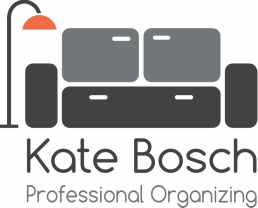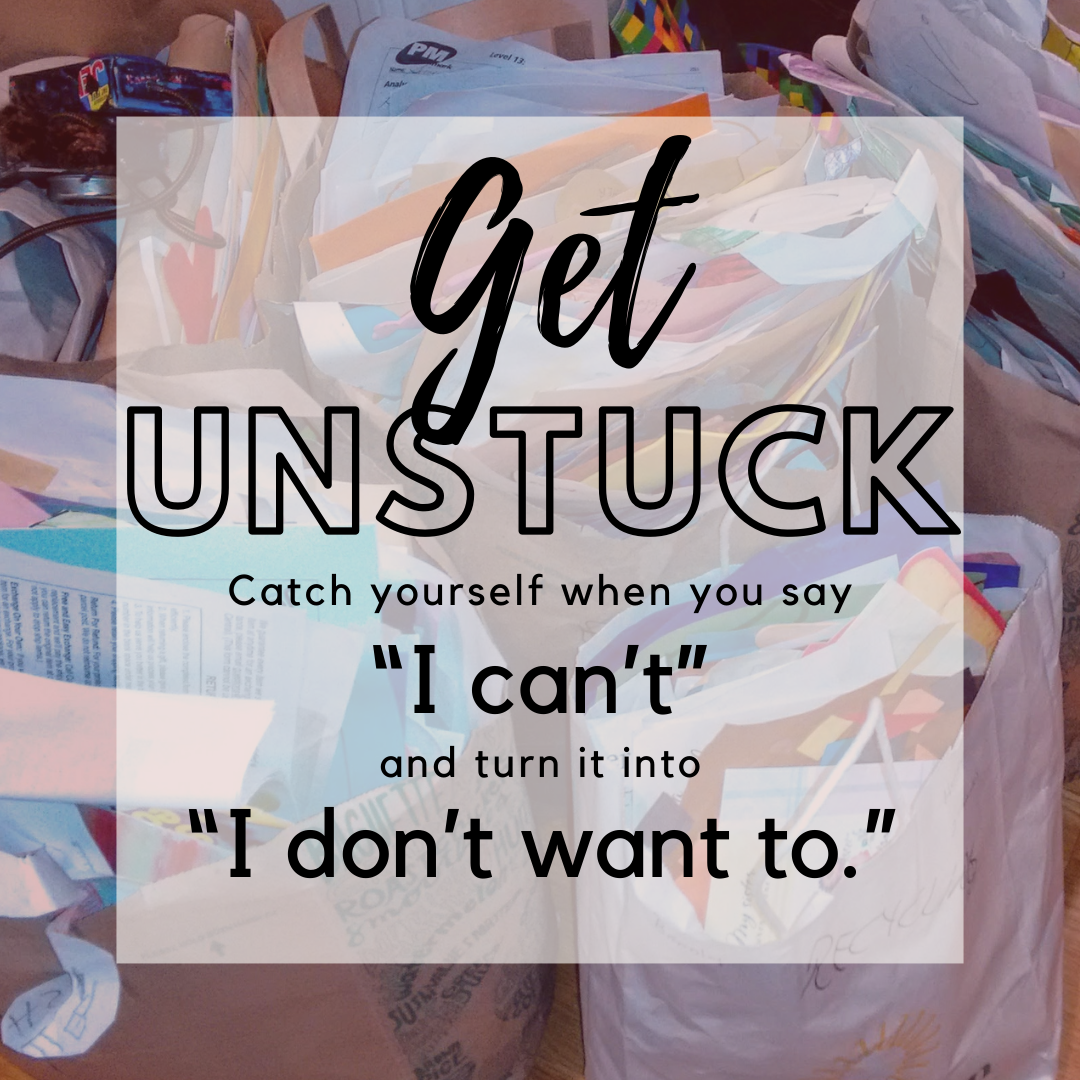|
Barbara* and I were sitting at her kitchen table considering how to tackle several stacks, baskets, and folders full of old papers. “Do you know what my therapist said to me?” she asked. “She said, ‘What’s the worst that could happen if you just shredded the whole pile?’” “But I just can’t do that,” she said with a wide-eyed look of horror. “I just CAN’T!” Barbara likes to be on top of things in her life, but in the past few years, she had lost a loved one, moved into a smaller place, and weathered the pandemic. Understandably, the paperwork (bills, receipts, tasks, notes, etc.) had just gotten away from her. “Well, technically, you can, right?” I gently asked Barbara. “I mean, you’re physically capable of throwing them away. It’s really that you don’t want to." "You’re a very conscientious person and that pile represents things you feel you should do, know about, or save. You want to be a person who takes care of your incoming papers, but life got stressful and the papers piled up. Now you have a backlog to deal with and you’re anxious about handling it the right way.” Barbara nodded. “That’s right,” she said. “I like to take care of things in a certain way. I like to be aware of what’s coming in and make sure I’m doing things the right way.” “So,” I asked, “If you don’t want to throw all the papers away without looking through them, what do you want to do instead?” I CAN, BUT I DON’T WANT TO As Barbara and I brainstormed, the scared look left her face. She was now back in control and ready to come up with a solution. When presented with a drastic proposal, we often put up the roadblock of “CAN’T,” which leads to paralysis. In reality, it’s not that you “can’t” do something, it’s that you don’t want to do it. When you say “I can’t,” the situation is controlling you. “I don’t want to” acknowledges that you can choose what to do. Saying “I don’t want to” puts you in the driver’s seat. WHY DON’T I WANT TO? To move forward, figure out why you don’t want to do it. Here’s why Barbara didn’t want to pitch all the papers: I like to know what everything is before I get rid of it. I might find something I was missing. I fear getting rid of something important. I want to be a person who does things the right way. Knowing Barbara’s motivation for wanting to look through all the papers sped up the process. We defined what she could let go of and easily recognized the special things she wanted to save. Once you know your motivation, you can come up with a better solution that works for you. In the end, Barbara did decide to throw away an entire stack of papers without having to examine each one because they all belonged to the “notes to self” category that she decided she could live without. The confident smile on her face as she tossed them into the “shred” bag was priceless! *Name changed to protect the disorganized. 🙂
0 Comments
Your comment will be posted after it is approved.
Leave a Reply. |
Categories
All
Archives
July 2024
|
|
Copyright © 2024 Kate Bosch Professional Organizing LLC
|
Providence, Rhode Island | 401-699-4878
|


 RSS Feed
RSS Feed